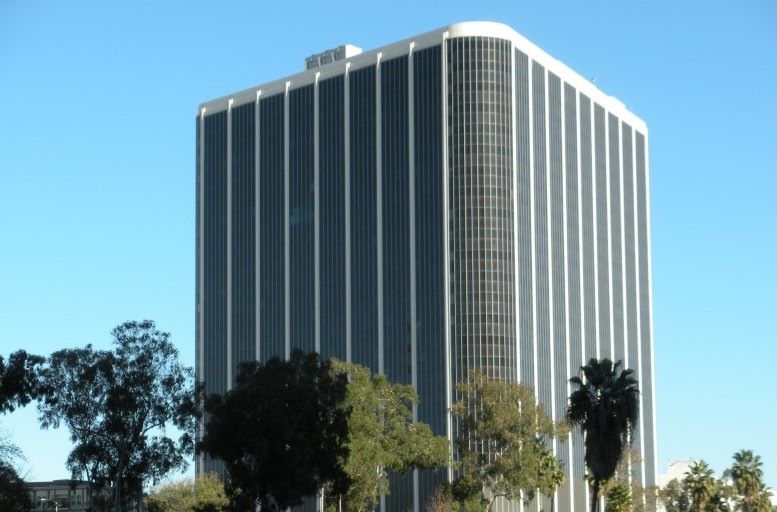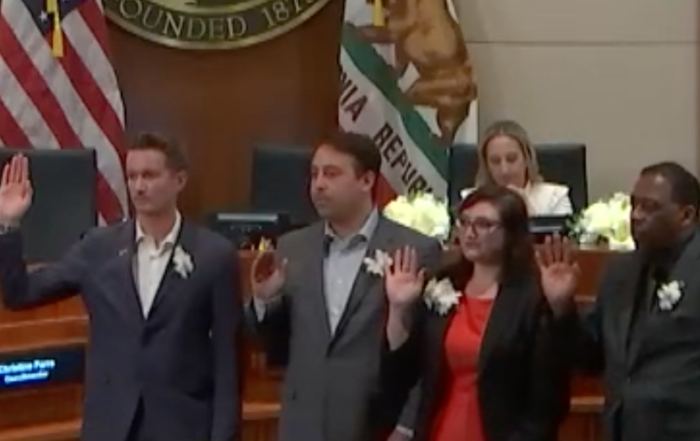Last Tuesday, the Los Angeles Unified School District (LAUSD) Board of Education approved the district’s report on Proposition 28 spending. In 2022, California voters passed Proposition 28 – the Arts and Music in Schools Funding Guarantee and Accountability Act. Arts organizations, unions, and parent groups across the state have sounded the alarm on mismanagement of Prop. 28 funds, saying school districts have failed to deliver on arts education.
This includes LAUSD, where parents and teachers have raised concerns about Prop. 28 implementation at schools. Prop. 28 funding is guided by four principles: everyone in every school should have a say in how their funds are spent, every single school should see an increase in arts funding, the money should be used to supplement, not supplant existing arts funding, and 80 percent of Prop. 28 funding should be spent on arts instructors. Though LAUSD received $77 million in Prop. 28 funding for this school year, community members allege that money has not been put to good use.
Much of this comes down to the district’s interpretation of the Prop. 28 “Supplement, not supplant” test. The law specifies that Prop. 28 funds are intended to expand school districts’ existing arts programs. Districts may not use the funds to pay for arts programs and educators they were already paying for.
The author of Prop. 28, Austin Beutner, said the language of the proposition was written to be easily understood and implemented. Beutner, who is also a former superintendent of LAUSD, joined UTLA, SEIU Local 99, and other labor groups to express his concerns in a letter to Gov. Newsom and State Superintendent Tony Thurmond: “School districts in California are willfully violating the law by using the new funds provided by Prop. 28 to replace existing spending for arts education at schools… Millions of children will miss out on the arts education voters promised them.”
In a letter to the LAUSD Board on June 18, the same coalition claimed LAUSD had violated “Both the letter and spirit of the law.” The groups also allege that LAUSD is willfully misinterpreting the law and misleading families and teachers.
According to LAUSD, the district spent $206 Million on the arts in 2023-24. $77 Million of that funding comes from Prop. 28. The report lacked detail on specific programming expenditures, but the Cultural Arts Passport – a program that provides no explicit art instruction – was included in the 2023-24 figure. LAUSD said schools on average saw an $82,000 increase in their total arts budget.
The district also reported an increase in full-time equivalent (FTE) art teaching positions – from 273 last year to 520 at present.
In a report to the Board, LAUSD’s Director of Finance Policy Saman Bravo-Karimi said the supplement test of Prop. 28 is determined on a district level, not on a school-by-school basis. While some schools may have seen a decrease in their overall budgets, he said, each school received their full Prop. 28 allocation. Enrollment numbers, the district’s equity index, and salary increases all affect a school’s overall funding and that’s where the discrepancy may lie. Some schools may feel cheated because they have received less arts funding from non-Prop. 28 sources this year.
Critics say this is the definition of supplanting.
The complex and oftentimes inaccessible LAUSD budget process has been an ongoing source of frustration for parents and teachers. The information available is difficult for laypeople to make sense of and answers from the district have been unclear. Parents Supporting Teachers (PST), a group founded during the 2019 UTLA strike, has organized to investigate Prop. 28 spending in recent months.
Nicolle Fefferman, an LAUSD parent and teacher, co-founded the group to support LAUSD schools and unite parents and teachers under the same banner. PST has nearly 30,000 members and enables people from all corners of the state’s largest school district to connect, offer guidance, and collaborate on common causes.
As early as last summer, parent questions about Prop. 28 spending began populating the group forum, Fefferman said. “There were all these wonderful promises of increased arts instruction, but nobody was actually seeing that at the school sites,” Fefferman said.
70 percent of L.A. County voted yes on Prop. 28. Prior to the law’s passage, only 1 in 5 schools had a full-time art or music instructor. Prop. 28, which Westside Voice endorsed in 2022, was passed to ensure schools could expand their offerings.
When parents began noticing that not only were schools not seeing art increases, but some schools were facing cuts to arts instruction, they knew something was wrong.
PST members began studying the district’s budget in earnest to find out where their Prop. 28 funds were going.
It was a labor of love, especially for Fefferman, who teaches history. PST developed a guide for their members to check on their own school’s Prop. 28 implementation. Fefferman worked one-on-one with scores of parents to decode the budget.
Still, only pieces of answers are apparently available through LAUSD’s public resources, provided one knows where to look. What they did find was clear to Fefferman: “Prop. 28 replaced existing funding instead of being added to the existing funding,” contrary to the law.
The apparent increase in arts instructors was just more sleight-of-hand maneuvering by the district, PST found. The appearance of more art teachers in school budgets was a matter of retitling teachers already employed by the school, Fefferman said.
In their survey of 75 elementary school budgets across all seven districts within LAUSD, PST discovered that the majority of elementary schools saw no increase in arts instruction this school year. A few saw a slight increase, and a few a slight decrease, but the average was nowhere near what they believed Prop. 28 should have provided.
Elementary schools are primarily supplied with arts instruction by itinerant teachers who split their time between a few different schools. Between 2022-2023 and 2023-2024, the district reported no staffing increase in the total number of itinerant art teachers.
In letters to individual board members, parents shared their research on their respective districts and asked three questions:
“How much district funding did these schools receive for arts instruction before Prop. 28?
Why was there negligible or no change in the number of arts instruction hours at these schools with the addition of Prop. 28 funds? Can LAUSD confirm that Prop. 28 funds were not used in any of these schools to replace existing funding?”
Fefferman said board members have been unable to answer these questions thus far, citing difficulty getting information from district budget officials.
Last Tuesday, Bravo-Karimi recommended that principals, teachers, and parents reach out to fiscal specialists at their school sites for clarification on specific concerns. Bravo-Karimi said the line-by-line spending of Prop. 28 funds – allocations determined by the California Department of Education and disbursed by the district – was ultimately under the purview of school principals. At the meeting, he told board members that all schools had received their allocations.
Elsewhere, LAUSD has spoken more frankly on why schools may not have seen significant increases. On its website, LAUSD said “Los Angeles Unified does not control how individual school sites budget their money or revise line items from one year to the next… As a result of this flexibility, some schools have chosen to use Prop. 28 funding to pay an art teacher and used their non-Prop 28 arts funding on art materials, curriculum, and experiences… individual schools may use funds in different ways or may move previously allocated positions between budget line items, while still seeing an overall increase.”
At last week’s board meeting, LAUSD art teachers spoke about the consequences of the district’s flexibility. Wanda Marshall, an itinerant elementary vocal music teacher, said her position had been moved from the general fund to the Prop. 28 fund in her school’s budget by the district. Marshall said she’d prefer to be in the general fund so her school could use Prop. 28 money for its intended purpose. “My schools did not understand that they could buy extra positions” with Prop. 28 funds, she said. Her schools lost out on the opportunity Prop. 28 should have afforded them.
In their interim budget report from February, LAUSD estimated it would end the school year with a Prop. 28 balance of nearly $28 Million. LAUSD has repeatedly reported spending all of its $77 Million allocation on Prop. 28 this year. This apparent balance may be due to schools not spending their allocated portion. Prop. 28 is an ongoing fund, but schools have three years to spend each year of funding they receive. The district said that some schools experiencing difficulty staffing new positions may be saving their funds for next year.
Board members also questioned how effectively Prop. 28 was communicated to schools.
Board Member Rocio Rivas said, “I want to make sure we’re taking this as a lesson learned, so next year when we’re allocating, we’re being more transparent and providing safeguards, more accountability.”
Board Member Scott Schmerelson said the district’s explanation of Prop. 28 spending had not been “Really clear or really transparent, and taxpayers – our constituents – deserve clear and accessible information.”
Rivas and Schmerelson were the only members to vote against the Prop. 28 report’s approval.
At the Tuesday meeting, district officials characterized the scrutiny over Prop. 28 funding as misplaced confusion. Fefferman said the district was misdirecting blame. “Nobody could or was willing to give a clear answer. They were trying to spin it,” she said. When board members tried to get into specifics, the responses were vague. “Every way they described it sounds exactly like supplanting and not supplementing,” Fefferman said.
Though they have yet to receive direct answers from the district, parents seem to have gotten somewhere by making noise.
In a conciliatory gesture, one that the district made clear was not an admission of wrongdoing but a confirmation of their commitment to the arts, LAUSD announced that next year, the district would allocate an additional $30 Million for elementary school itinerant art teachers. “We enabled this additional funding to address the issues in these schools that saw some of this variance, to make sure there are no losers in the entire district, going above and beyond the requirement of Prop. 28,” Superintendent Carvalho said.
Elementary schools whose hours of arts instruction decreased or stayed the same this year can expect to see an increase next year.
While Fefferman welcomes the additional $30 Million, she said it doesn’t restore her faith in the district’s budgeting process. After coming up against the board’s “Reluctance, resistance to respond” to parents, she has more questions about secondary school funding. PST members have begun trudging through middle and high school budgets in their spare time and their findings are raising similar issues. “It feels like the guard rails have come off,” she said. “Who’s going to be accountable for making [this] process function fairly and correctly?”
Photo of LAUSD headquarters by Ucla90024, CC BY-SA 3.0 , from Wikimedia Commons
Stay informed. Sign up for The Westside Voice Newsletter
By clicking submit, you agree to share your email address with Westside Voice. We do not sell or share your information with anyone.








